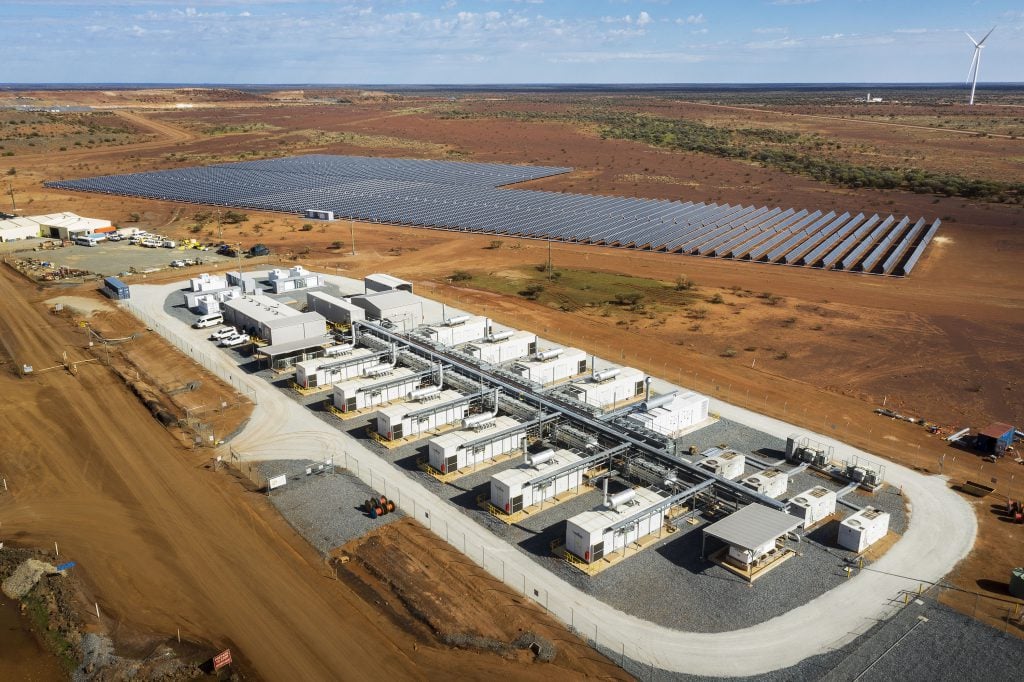
The government of Western Australia is funding work to assess a potential battery energy storage system (BESS) project which would be the biggest built in the state so far.
Up to AU$1 million (US$0.76 million) in funding has been committed from the Collie Futures Industry Development Fund for the first stage of a feasibility study into the project, which Minister for Regional Development Alannah MacTiernan said would help Western Australia’s transition away from coal.
The BESS, planned for construction in the town of Collie, is tentatively expected to be between 600MWh and 800MWh, according to a statement issued last week from MacTiernan’s office. Australia’s biggest project of this kind so far is the 300MW/450MWh Victorian Big Battery on the other side of the country, which went online a few weeks ago.
The feasibility study funding is for the Collie Battery and Hydrogen Industrial Hub Project, which as the name implies may include green hydrogen electrolysis and production of green ammonia and urea powered by renewable energy.
Try Premium for just $1
- Full premium access for the first month at only $1
- Converts to an annual rate after 30 days unless cancelled
- Cancel anytime during the trial period
Premium Benefits
- Expert industry analysis and interviews
- Digital access to PV Tech Power journal
- Exclusive event discounts
Or get the full Premium subscription right away
Or continue reading this article for free
“This project will provide a firm basis to progress a renewable energy hub in Collie,” MacTiernan said, adding that it makes sense for the region to host a clean energy hub as Western Australia transitions away from the coal industry.
Massive renewable energy hubs hosting a mix of solar and wind and battery storage, often with large-scale green hydrogen commitments, are being planned in various parts of Australia by different state governments.
These hub plans appear to draw interest from private entities. Meanwhile merchant revenues large-scale battery storage can access from ancillary services and arbitrage in Australia are reportedly pretty good, especially for regions connected to the National Electricity Market (NEM) — which Western Australia is not.
However, while revenues have been good, revenue streams are not certain, without long-term contracts for services as seen in other markets like the UK or California. A recent report from BloombergNEF pointed out that this uncertainty could slow down deployment in Australia as it makes it harder for developers to access financing from lenders.
In various cases, state governments have stepped in to fill funding gaps. For instance, Queensland’s government said a week ago that a power company it owns will build a 100MW/200MWh BESS at a former coal plant site. In announcing that project, Queensland energy minister Mick de Brenni criticised Australia’s federal government for a continued lack of ambition to act on climate, leading the state to take the initiative and invest.
Assessment of the Collie battery project will be conducted by Sunshot Energy, an investment and advisory group focused on decarbonisation.
The project could unlock AU$730 million investment in green industries and decarbonisation initiatives, adding 500 construction jobs and about 400 ongoing jobs after commissioning, while the low-cost energy it enables will benefit businesses in the region directly, Minister MacTiernan’s office said.





